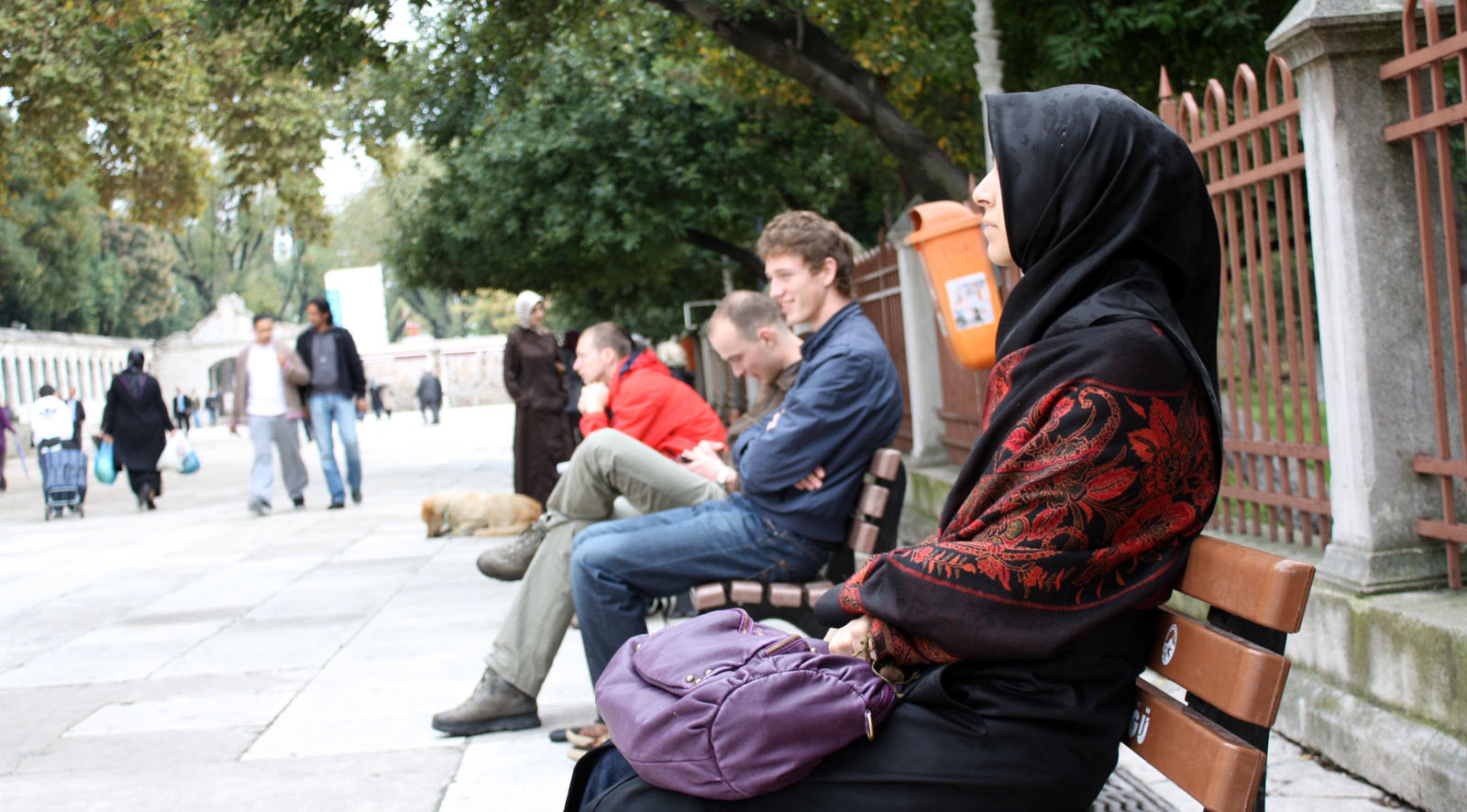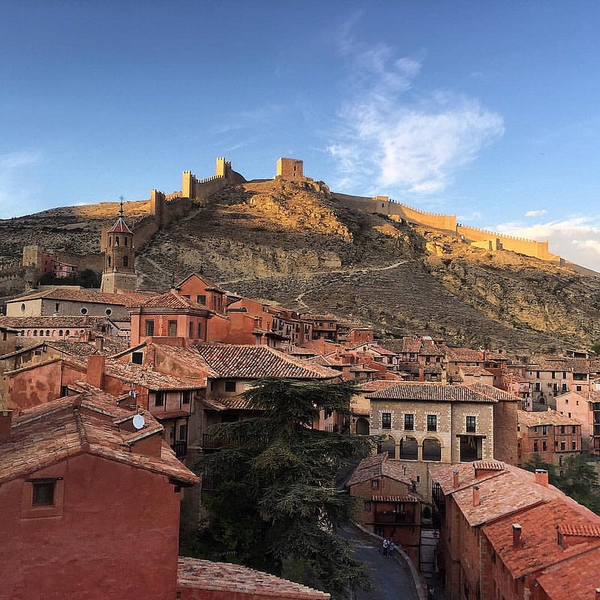When I was an international graduate student, a first timer in the US, I got my first taste of the smooth functionality of the American Democratic apparatus in 2012. I was in New York, the world’s melting pot and home of liberals, and the air back then had a taste of… the inevitable. Four years down the road when I returned to the US, the presidential race was just kicking off. This time I touched down in Texas, a traditional conservative state that has historically leaned Republican. The mood has been decidedly tense.
I have witnessed, as a visitor from a developing nascent democracy (Pakistan), an institutional democracy at work with its varied democratic cogs functioning in a free society. The challenges are ever evolving; the domestic and international sociopolitical forces forever in flux. But the promise of a government ‘of the people, by the people, for the people’ has intrinsic legitimacy that is upheld every time America goes to the polls. Having studied America as the shining example of a democratic society, I am unnerved to behold that even hallmarks of democracy can have messy transitions.
But a peaceful transition nonetheless. That is the bottom line that many are finding it hard to grasp, especially the expats who have settled here and consider America home. Many face uncertainty regarding their place in their adopted nation that is struggling with race relations and facing the menace of terror at home and abroad. Fear rules the collective political psyche and the stories of intolerance and hateful rhetoric have left many feeling unsafe in their home, America…land of the free.
As a relatively new arrival here, I have made some new friends among the expat community of Dallas. Many are doctors and engineers and most are American citizens who have lived here for decades. Their children are 1st generation Americans and this is the only home they know. For more than a year now, political discussions have dominated casual conversations and the mood has swung from initial mild amusement to incredulity, shock and disbelief. Since that fateful Election Day, my small circle of expat friends seem to be going through the five stages of grief: denial, anger, bargaining, depression and acceptance, albeit everyone at their own pace. The spectrum of opinions somewhat reflects these stages, and most are divided between optimism (Acceptance) or extreme pessimism (Denial).
Stage 1- Denial:
Denial kicked in with Donald Trump’s first speech announcing his candidacy for the Republican nomination. The highly criticized speech and its blatant xenophobic and overtly racist substance shocked many and even stirred mild amusement. ‘He did not really say that!…Did he?’ was my first reaction. Many late-night shows had juicy new material for their audiences and we all laughed it off. A friend of mine actually told me, ‘He will never win the nomination. Many people are caught up right now with the year end and have not had a chance to come out and challenge his bigoted agenda…’
Stage 2- Anger:
And then Trump started winning primaries. Incredulity turned to disbelief and disbelief to anger. Another friend of mine was shocked that many of his office colleagues – people he worked with day in and day out – were actually Trump supporters. ‘These are educated people…Don’t they see his hateful agenda?’ he said. ‘We are hardworking people… earning an honest living.’
Anger took root amidst national protests over racial tensions and patriotic platitudes on Facebook. Expats such as myself were going through a hard time. For people like me, relatively new to America, journeying far from home seeking the American dream, we were livid. Why is the American dream becoming so elusive? Why is our hard work not cutting the mark? For those who have called America home for decades now, it was a lot harder. It was a rejection from a home that they worked hard to build and seek fulfilling lives in. One pharmaceutical professional who has lived here for 40 years directed his anger at ‘mentally ill, extremist elements who taint my religion and my people.’ He reminisced the more tolerant times before 9/11, before a few misguided individuals hijacked his religion and identity as an American Muslim.
Related article: “THE TRUMP DOCTRINE: MADMAN, THEORY, AND OIL IMPERIALISM”
In the Photo: Khizr Khan with his wife, Ghazala Khan, at the Democratic National Convention. Khan holds a copy of the U.S. Constitution after son U.S. Army Captain Humayun Khan, was killed in 2004 during the Iraq War. Photo Credit: Wikimedia Commons
Stage 3- Bargaining:
Right before the election I saw many expats rally their fellow Americans to go out and vote. If only they would have taken a more active part in the elections and not taken it for granted. If only people would not have stayed home because they hated Hillary too. If only the rigged system of Washington elites had not hampered Bernie’s candidacy, the only viable choice against Trump…If only.
Fear of the unknown has made people nervous. From Muslim registries to curbed religious freedoms, what possible policies will manifest in these deeply troubled times? American Muslims are rallying their compatriots to become more socially conscious, promote religious tolerance and create communal bridges in divided societies. One of my more pragmatic friends shared that while he braces himself for ‘cynical and controversial years ahead’ it is yet to be seen how they will affect us. He believes that this overwhelming overhaul of the traditional liberal agenda will show the ‘other side of people’. Whether good or bad, it nevertheless will be a more honest, conservative side that years of overt liberalism had subdued. For better or for worse, he opines, at least systemic hypocrisy will be laid to rest. One continues to hope for the better.
Stage 4- Depression:
‘The system is broken…We are all doomed.’
‘Such a flawed system – reprehensible and discouraging,’ one of my friends responded dejectedly to my questions about her hopes for the future. The future is unpredictable and chaotic. Another bemoaned the democratic process gone awry. ‘This election showed everything that is undemocratic about the election process in this country. It certainly showed that the will of the majority is not always what is right for the country and its ideals.’
Envisioning an uncertain future, another expat American dejectedly notes: ‘Trump does not stand for anything. He will change his stance at the drop of a hat for the right price. This makes for great uncertainty for citizens of the US, and our friends and enemies abroad and can lead to tensions and over reactions.’
In the Photo: In a rare show of solidarity with victims of terror attacks in Lahore, Pakistan March 2016, a hotel in US, the Omni Dallas, displayed the Pakistani national flag on its facade. Photo Credit: Abb Takk News
Stage 5- Acceptance:
Some have started coming to terms with impending life under new leadership, even accepting why America chose Trump, an anti-establishment outsider as their new president. Around 55 percent of those I posed the question thought the election was fair. One realtor shared that she was disappointed with the results but that the elections were eye-opening. ‘The results displayed how many people are actually so discontented with the way things are currently and desperate enough for an uncertain even radical change’, she said.
Another added that it certainly was a reaction of the people to the stagnation of their individual progress in the last 8 years, a political response to the stagnant elites in Washington. That is, after all, the purpose for a democratic election, responding to the desires of the governed and providing a legitimate system for change.
A few now believe that the apprehensions regarding the Trump presidency are unfounded. ‘“Those who thunder don’t pour” so it won’t be as bad as we are thinking’. Another believes that if you are a law-abiding citizen, working with the system, there is nothing to fear. Another opines that the American economy is too dependent on expat professionals (especially in the Silicon Valley tech sector) to ever drastically or unjustly persecute a major pillar of their economic strength.
These chaotic months have proved that the American system of democracy is functional and robust and capable of an overhaul of an unpopular agenda. A true, entrenched system of institutional democracy is not known for its efficiency. Its strength is in its distributed power and checks and balances. It works. Not efficient, but reliable. With the challenges of an extremely divided and divisive electorate, it is going to be America’s saving grace.
Recommended reading: “WOMEN’S MARCH ON WASHINGTON SET TO BE ONE OF AMERICA’S BIGGEST PROTESTS”












